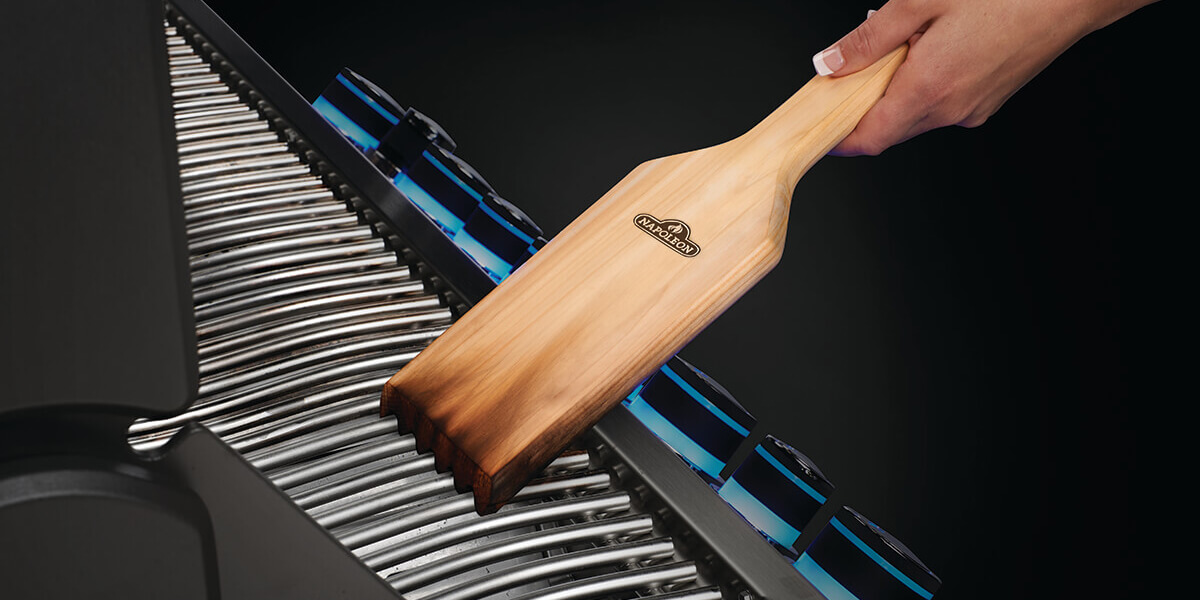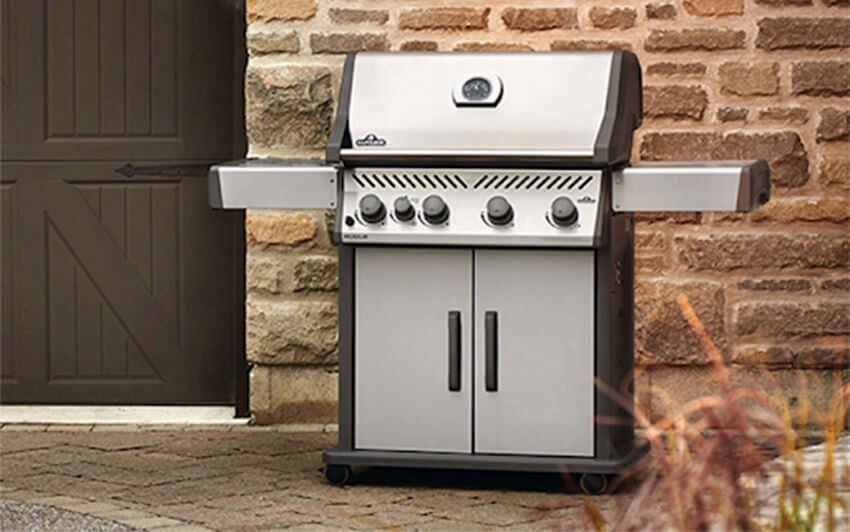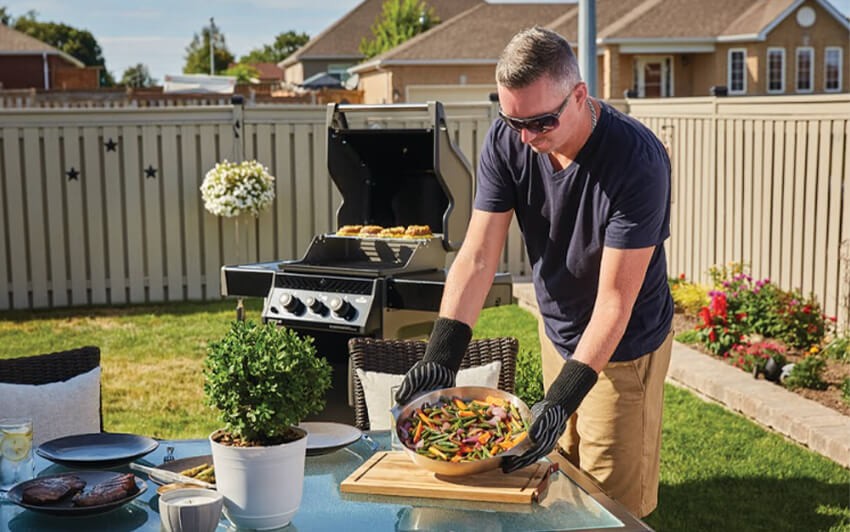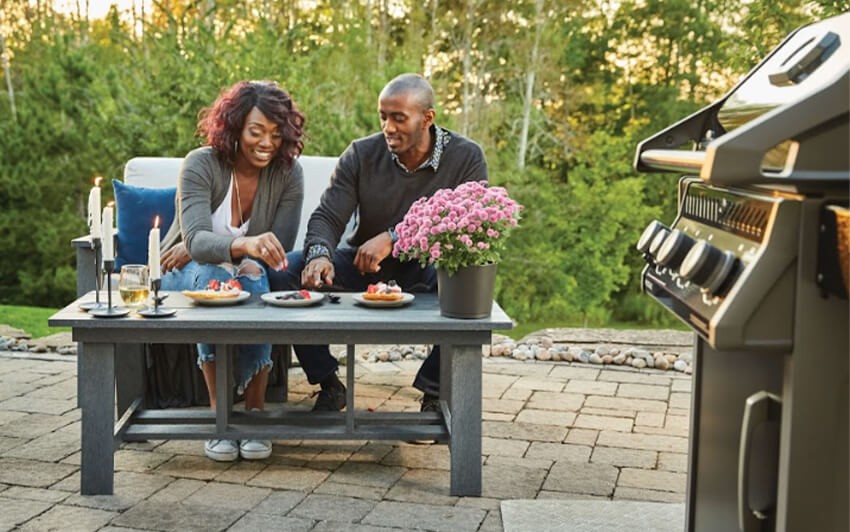
How to Clean Your Barbecue Cooking Grids
Cleaning grill grates is a must-have skill for all grillers. Whether it’s because the grilling season is fast approaching and you want your grill to shine or you just want to get rid of a large build-up on your barbecue grates, you’ve come to the right place.
In this comprehensive article, we cover all you need to know about cleaning grill grates on your Napoleon grill - such as how often it’s done, what materials you need and the step-by-step instructions on how to do it safely and effectively. So bring out your dirty grill grates and let’s get cleaning!
Why Should You Clean Your BBQ's Cooking Grids?
Deep cleaning your grill grates will get rid of that dark stubborn buildup which is made up of carbon deposits, grease, and sugary sauces. These can harbour bacteria, impede the grill from reaching its full temperature, and cause the grates to be heated unevenly.
While some people claim that this buildup adds flavor, it is a highly undesirable flavor from carbon deposits and rancid grease. And these unpleasant flavors can definitely add an undesirable flavor to your meals.
Rust won’t form on stainless steel cooking grids but can form on cast iron ones. Aside from cleaning the buildup on the grates, you can also take a few added steps to deal with any rust that has formed on the grates.
Are There Preventive Measures to Avoid Massive Buildup on Cooking Grids?
Deep cleaning is a necessity, no matter how well-maintained your grill is. However, proper maintenance would mean that there would be less build-up to clean. Proper practices can also keep rust at bay. So let’s quickly go over these - in case you’re not doing them already.
-
To avoid rust, cast iron cooking grids need to be seasoned regularly.
-
To avoid rust (as well as mould), make sure to close the lid of the cooker when it’s not being used.
-
If you plan to store your grill, for example, over the winter, ensure that your cooking grids have been thoroughly cleaned. Lightly coat them in cooking oil and wrap them in a plastic bag before storing them, along with your grill.
-
Turn the grill up to high as soon as food comes off to rest. After 5 or so minutes, brush the cooking grids with a grill brush to clear away any debris and turn the grill off. This should be done after every grilling session.
-
Keep an eye on your grill brush. Once it begins to shed bristles, it's done and a new one should be purchased. Grill brush bristles can be dangerous when ingested.
-
Ensure you use the correct grill brush to clean your cooking grids. Brass grill brushes or wood fiber brushes are ideal for cleaning cast iron cooking grids. To get the best results it is preferable to use a stainless steel brush for stainless steel cooking grids, however, brass and wood fiber brushes will also do the trick. Never use a stainless steel brush (bristle or wound) on cast iron grids.
How Often Should You Deep Clean Your Barbecue Grids?
During grilling season, you would want to give your grill a thorough cleaning at least twice. If you use your grill frequently, like at least once every week, cleaning grill grates should be done every two months. This includes cleaning the burners, sear plates, and firebox. You can find comprehensive instructions on deep cleaning your whole grill here. Deep cleaning does not always need to follow this schedule. If you see massive buildup on your grates and you notice it’s impacting the performance of your grill, then it’s definitely time for deep cleaning.
What Equipment Do I Need for Cleaning Cooking Grids?
Grill Brush
There are various types of grill brushes. The most common ones are the wire brushes. The bristles of these brushes are dangerous when ingested - so safer alternatives have emerged like stainless steel coil brushes, wooden grill scrapers, and more.
Rubber Gloves and Bucket
The bucket is for soaking the grill grates later so make sure to get one that is appropriately-sized. Gloves are a great way to protect your hands every step of the way when cleaning your cooking grids.
Kitchen Sponge and Rags
These ones will be used in the later parts of cleaning the grates so make sure to have them ready. A quick note about the sponge: make sure to not use anything too abrasive like steel wool as that will damage the grates.
How to Clean Barbecue Grates
Alright then! Get your materials ready because it’s time to make your cooking grids sparkle. Some choose to do only select steps from the ones below, adjusting to the amount of cleaning that their grill grates will need. For deep cleaning though, we recommend following all these steps in order.
Burning
-
Fire up the grill and close the lid. Allow the grill to come to full temperature.
-
Wait for 30 minutes near your girl during this stage for safety. The high temperature will burn off the buildup of food and grease.
-
Remember to use a grill brush that won’t react to the heat like one that is made of wire, coiled steel, or wood. Scrub the buildup from the grates.
-
Now it’s time to turn off the heat. Allow the grill to cool down completely.
-
For gas grills, turn off the gas. For charcoal grills, once completely cool, carefully dump the charcoal into a metal container. You may also need to scrape away any remaining charcoal dust and debris.
Soaking Stainless Steel Cooking Grids
-
Now that the grill has cooled down, take out the grates and sear plates.
-
Submerge these parts into a bucket of warm, soapy water. Make sure the bucket is big enough.
-
Allow them to soak for 30 minutes.
Post-Soak Scrubbing
-
When the 30-minute soak of the grill grates and sear plates is done, take them out and scrub them with the kitchen sponge.
-
If you still encounter really stubborn gunk at this stage, a paste of white vinegar and baking soda can help to soften those troublesome spots.
-
Rinse the grates with water and allow them to dry.
Removing Rust on Cast Iron Cooking Grids
Prevent rust on your cast iron cooking grids by properly maintaining them and ensuring that they are well seasoned on a regular basis.
Inspect your grates for rust. If you have rust on your grates, this is the perfect time to remove it.
Minor rusting can be removed by gently scrubbing so make sure to try this first.
Stubborn spots of stuck on sauce and food can be removed by brushing those heavily built-up areas with oil and allowing them to soak for a while before scrubbing again.
Once cast iron cooking grids are clean and thoroughly dry, using a high-temperature oil like shortening, flaxseed oil, or canola oil, cover the grids completely, on both sides, with a thin coating.
Turn the grill on and heat the grill to between 350 and 400°F for 30 to 60 minutes. Remember to keep the temperature below the smoke point of the fat used, which will allow the oil to bond to the surface of your grids.
If your cast iron cooking grates are particularly dirty, you can wash them with soap and warm water, however, they will need to be completely dried and reseasoned immediately.
And there you go! You have freshly cleaned cooking grids that are ready to make more delicious meals and memories.
Do you have your own tips or hacks when it comes to cleaning your grill grates? We’d love to hear from you. Share your best cleaning tips for your barbecue grates on our social pages like Facebook and Instagram, using the hashtag #NapoleonGrills.


